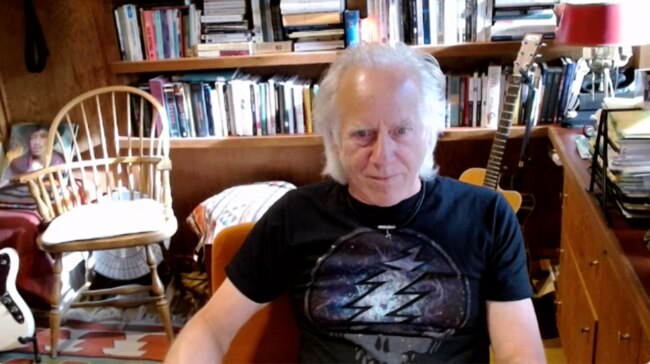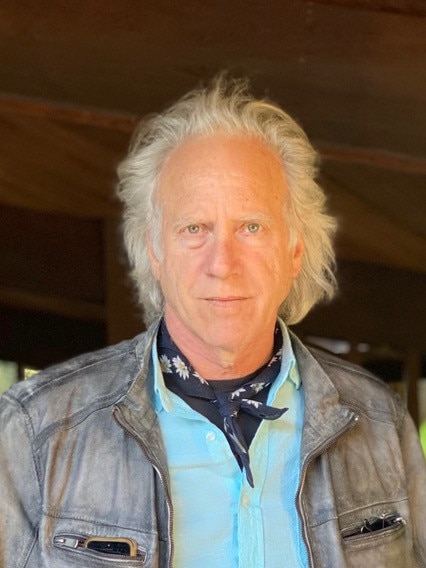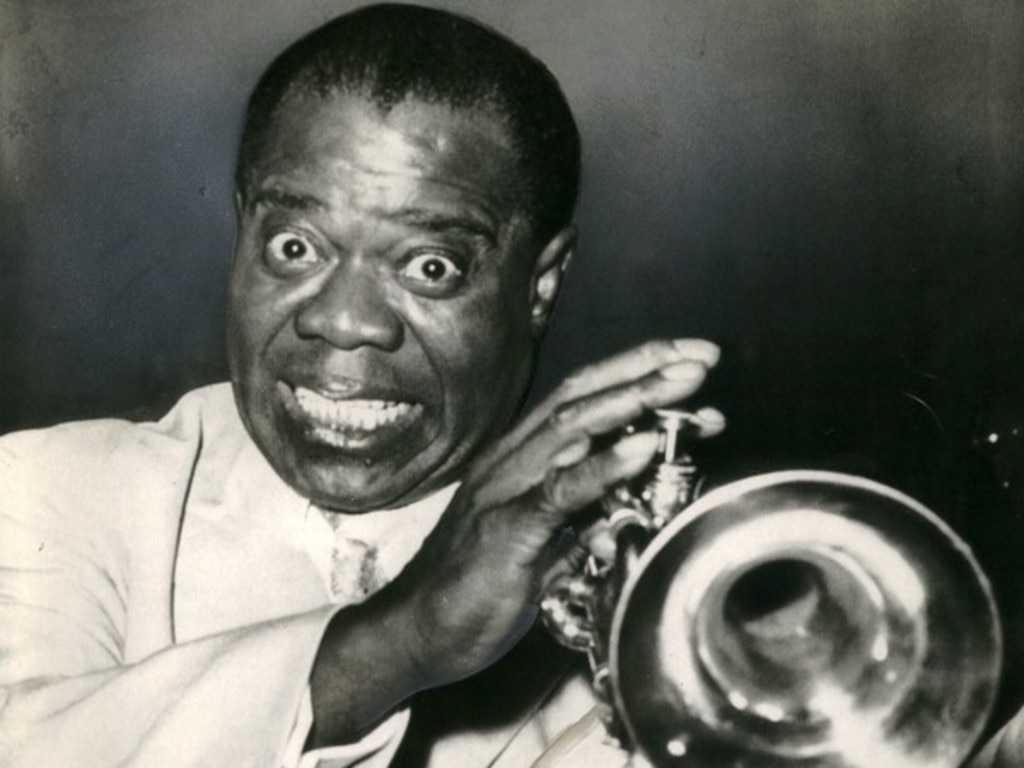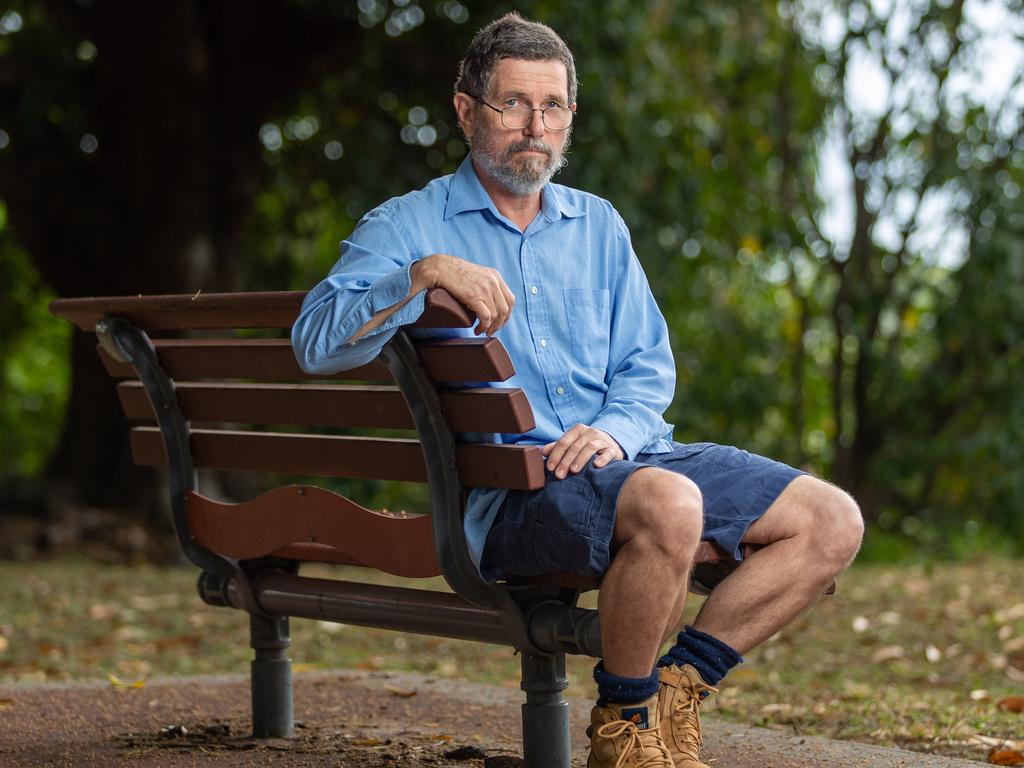Unique thought warrior Robert Pogue Harrison brings dead voices to life
In the shrinking world of intellectual freedom, one man is holding the fort.

Harrison is not part of the splurge of political podcasts waging war with the left or the right. One of the original long-form podcasters, before the word was born, Harrison started recording his meandering interviews, called Entitled Opinions, in 2005 in what he calls the catacombs of Stanford University’s radio station KZSU. He chooses “catacomb” deliberately. This is where, as he tells his listeners, new religions are born, his being “the persecuted religion of thinking”.
Harrison still records Entitled Opinions as a Stanford radio show with a global podcast audience as wide and eclectic as his topics. Not many people get away with podcasts called “On the word ‘and’” or “Great Narrative Endings” or “Silence” or “What Do Bridges Do”.
Harrison is simultaneously a polymath and a professor of literature, a specialist on Dante, an intellectual explorer of our civilisation and surrounding cosmos. His podcast about the role of psychedelic drugs in literature starts as follows: “Entitled Opinions is not the pill your mother gives you. It’s the pill she takes when you’re not around … up here we are stoned immaculate, up here our heads are fed with the bread of angels. Up here our arrows are made of desire. Up here is where the Gods make love.”
Harrison is having fun with his audience. He is also unapologetic about talking up, not down, to them, transporting them to places at once old and new. He warns listeners that “If you have an aversion to the exchange of ideas, if you are deficient in curiosity, if you suffer from common American anti-intellectualism, then please tune out now.”
Speaking with me over Zoom from Stanford where he lives and teaches, Harrison’s passion for defending, and refreshing, our cultural legacy is palpable. When he speaks about poets, writers, artists, philosophers, and their ideas, it’s with an intimacy as if recalling a love affair. No more so that when he is talking about music; there is a guitar in the corner behind his desk. It explains his “Happy Hour with Jethro Tull” podcast and monologues about The Doors, Jimi Hendrix, and Pink Floyd. That last one made me teary, the music and story of Floyd is pure melancholic brilliance. Oh, and he is in a band called Glass Wave.

Born in the ruins of what some suspect may be Homer’s birthplace in Izmir, Turkey, in 1954, blown away by Hendrix at a concert in Rome in May 1968, a young Harrison soon understood the dynamic relationship between the wisdom of past voices and the revolutionary genius of new ones. He has taught literature at Stanford for almost three decades, and his books include The Dominion of The Dead, where he explores how the living maintain a connection with the dead, and Juvenescence, where Harrison posits that we are growing younger culturally, losing the necessary condition of reciprocity with our past.
Dead voices are writ large in Harrison’s life and work. He is concerned that the genius of innovation and change, now at speeds not seen over the course of human history, is breaching our connection with the wisdom of the past. “Genius liberates the novelties of the future, (and) wisdom inherits the legacies of the past, renewing them in the process of handing them down,” he writes in Juvenescence.
Harrison is too cool to be a curmudgeon. He recognises that being young is positive. “It’s vibrant, it’s energetic, it’s creative,” he tells me.
“But if we forget our cultural age and pretend like we’re children, then it’s really dangerous. And when you lose your cultural memory and connection with the past and with the dead voices that speak from the deep past, then you also, I think, lose the sources of rejuvenation. You can either rejuvenate or you can juvenilise. I don’t know how we can go forward into the future viably without a solid kind of foundation in the past.”
Harrison draws on Dante to explain the dynamic synergy between genius and wisdom. “Dante in the Middle Ages is in a deeply Christian society, and he becomes the first person to write a Christian epic in the first person singular. That was very radical. That was very new. That opened up a whole new genre for the future. But he did not just invent it like Silicon Valley start-up companies say they are all about innovation. He found his way into the new possibilities of a Christian epic by the systematic study of Virgil, and with Virgil, the epic tradition that came from Greek and Roman sources,” he says.
He points to the same intellectual synergy between genius and wisdom when the Founding Fathers created a new nation. “Thomas Jefferson used to translate the Greek Bible into Latin and the Latin Bible into Greek when he was in high school. President Garfield, a century later, when he wanted to amuse his friends … he would take two pencils (one in each hand) and write Greek and Latin letters – sentences – at the same time.
“The framers of the American constitution … would go back and pore over the annals of the history of Rome and where Carthage went wrong. The whole new nation of America, the new republic, was thought up very deliberately by this constant persistent reference to antiquities and its models of the future.
“Compare it to our most recent presidents. Their childishness is not only shocking from a cultural point of view, it’s also dangerous … if you don’t know how previous republics have very easily self-destructed, then you’re not going to take care to avoid repeating those same mistakes.”
He laments that education, especially the humanities, is deliberately trouncing dead voices. And he is unsurprised that humanities degrees at Australian universities have been penalised by a fee hike by the government.
He blames a cynical crusade over the past few decades where the humanities have become “more of a deconstructive enterprise rather than a reconstructive one. If we, the teachers, are the first ones to put into the tribunal all of the white males that represent the tradition, and invariably, when you put them in the tribunal, almost all of them are going to be indicted and proclaimed guilty, then it’s not unusual that governments should say, ‘Why should we fund a dead story?’”
Technology has become another killing field of dead wise voices. Unceasing, noisy distractions that make no room for silence. Yes, oxymoronically, there is a podcast on silence too. The undeclared war on silence, along with the rush to innovate, stops us from thinking about why the past matters.
Statues of men from the past are torn down to assuage modernity and change. The same political “innovation” surely drove the American Civil Liberties Union to alter Ruth Bader Ginsburg’s own words, removing the word “women” when marking her history of fighting for abortion rights, and inserting the word “person”.
Harrison says the modern affliction of erasure is deliberate, akin to restarting the calendar, common among tyrants. “It’s what the Latins called damnatio memoriae, to damn the memory of something … it is intervening in the very fabric and truth of history,” he says.
Harrison’s determination to champion dead wise voices, to be an heir to history rather than its orphan, puts him on a collision course with zealots hell bent on censoring words, ideas, books, art, history, and, of course, people.
So far Harrison has avoided the intolerant puritanism. But the puritans come for you eventually if allowed to continue their ideological cleansing of our past. Perhaps that is why he is grateful not to be starting out in his career now. “What worries me the most about cancel culture is that it risks cancelling the principle of reason as the ultimate adjudication for whether an idea or an opinion is well-founded or not well-founded,” he says.
He points to a political culture where “it’s no longer the virtue of my actions which defines my moral core, it’s the indignation of my reactions”.
Harrison’s solution is to offer his students, and his Entitled Opinion audience, room for thinking. And listening.
It’s not a safe space; it’s a seriously difficult one.
Truth be told, listening to Harrison’s podcasts, I sometimes feel like my little girls at the bottom of the stairs. Curiosity pricked by adult conversations I don’t always fully comprehend, often taking notes, hoping that I will graduate up the staircase of understanding to make sense of the messy, shimmering, and maddening world that Harrison explores with his audience.







When my girls were little, they would sit at the bottom of the stairs at home listening to our dinner parties upstairs. My eldest, who was seven, took notes, not able to spell or understand many of the words she wrote down. I knew nothing of this until years later. Then last week my son did the same. It was Sunday morning, and he, at 21, was hung over after a post-lockdown get together with friends. What lugged him out of bed to sit on the stairs below me was the unmistakeable voice of Robert Pogue Harrison wafting down the atrium to his room. I don’t often get cred from my kids. I did that morning as my son listened to my conversation with Harrison, a rock star in the adult world of ideas and culture.